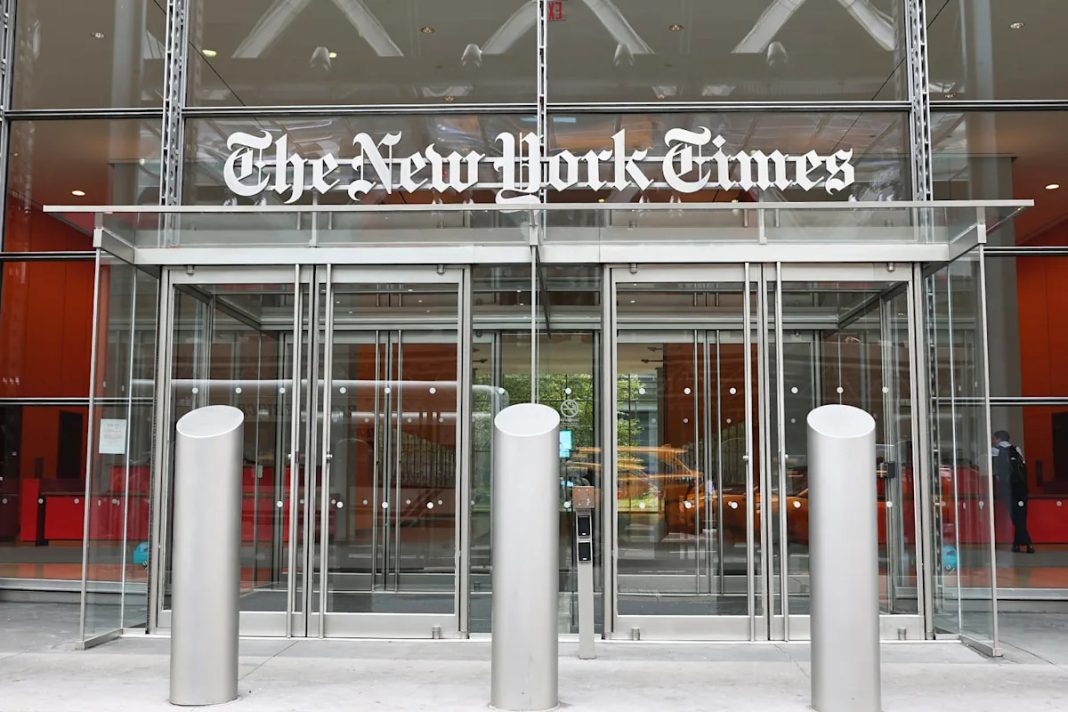Donald Trump’s approach to the freedom of the press has never been especially healthy — we are talking about a president who’s echoed Joseph Stalin while attacking journalists — but his campaign against the media has been especially outlandish lately. In recent weeks the Republican has suggested “evening shows” are “not allowed” to criticize him and argued that networks that give him “only bad publicity” risk losing their broadcast licenses.
At one point late last month, the president went so far as to claim that broadcasters airing evening news programs are doing something “illegal” if the White House disapproves of their coverage.
But arguably the most foolish element of the recent campaign came last month when Trump and his team filed a $15 billion civil suit (that’s not a typo) against The New York Times, claiming that the newspaper defamed him and tried to ruin his reputation. Four days later, a federal judge threw out the case — not because it lacked merit, but because the president’s lawyers’ court filing was simply too ridiculous. The smackdown was so brutal that Politico’s Kyle Cheney noted that the judge called Trump’s court filing “essentially garbage.”
U.S. District Judge Steven Merryday offered the president’s lawyers an opportunity to try again. They accepted. The Times reported late last week:
President Trump on Thursday refiled his defamation lawsuit against The New York Times and several of its reporters, again accusing the news organization of seeking to undermine his 2024 candidacy and disparage his reputation as a businessman. … Mr. Trump’s revised legal filing on Thursday evening was 40 pages, less than half the length of the original. … Many of the original complaint’s lengthy tributes to Mr. Trump, like a sentence that described his 2024 election victory as ‘the greatest personal and political achievement in American history,’ are no longer present.
The improvements suggest the litigation could last at least a little longer than Team Trump’s original attempt, even if the underlying case faces long odds. But as the process moves forward, a couple of broader dimensions to this are worth keeping in mind.
The first is the sheer volume of these cases. Trump’s case against the Times comes on the heels of other civil lawsuits he’s brought against The Wall Street Journal, CBS News, ABC News, The Des Moines Register and CNN, among others. (Note: The cases against the Register and CNN are separate, though I’m not permitted to separate them with an Oxford comma.) Trump also sued The Washington Post’s Bob Woodward, although that case was recently thrown out.
This collection of cases might make it seem as if this has become routine, but the broader circumstances remain bizarre: Americans have never had a president who, while in office, sued independent news organizations and individual journalists for publishing reports the White House disapproved of.
And yet, Trump can’t seem to stop suing independent news organizations and individual journalists for publishing reports the White House disapproves of.
The other part of this is the president’s rationale, which extends beyond his obvious contempt for the free press. Helping fuel Trump’s litigiousness is that some of these lawsuits have worked out rather well for the president.
When the Republican filed a dubious case against ABC News, for example, the network and its corporate parent agreed to a $16 million settlement. When he filed an even weaker case against CBS News, Paramount also struck a $16 million deal.
In the weeks and months that followed, Trump repeatedly pointed to these highly controversial settlement agreements as evidence of his targets’ guilt, even as those networks denied any wrongdoing.
The result has created an unfortunate dynamic: The president appears to believe he has nothing to lose by filing suits like these. If the media outlets settle, he gets a sizable check. If not, he still gets the satisfaction of picking a fight with news organizations he hates, which he can brag about to his GOP base.
Put another way, Trump’s re-filed lawsuit against the Times is silly, but it’s unlikely to be the last.
This post updates our related earlier coverage.
This article was originally published on MSNBC.com

